|
|
|
|
Canada has paid more than $1 billion to jump the global queue for millions of doses of COVID-19 vaccines. Like other wealthy nations, Canada is trying to ensure its own front-of-the-line access to whatever vaccine candidate gets to market.
It’s understandable, of course, to want to keep Canadians healthy. But the COVID-19 pandemic has shown that public health is a global issue. The real cost of rich countries pre-purchasing half the anticipated short-term vaccine supply is a predicted 28 per cent increase in the number of global deaths, compared to an equal-access scenario.
While we wait for a vaccine, today in The Conversation Canada you can get immediate access to a dose of information about the potential effects of vaccine nationalism — and potential alternatives — from Ronald Labonte, distinguished research chair in globalization and health equity at University of Ottawa, Mira Johri, professeure titulaire, École de santé publique, Université de Montréal; Srinivas Murthy, clinical associate professor, faculty of medicine at University of British Columbia and Katrina Plamondon, assistant professor, School of
Nursing at the University of British Columbia.
Also in today's edition:
Regards,
|
Patricia Nicholson
Health + Medicine Editor
|

|
|
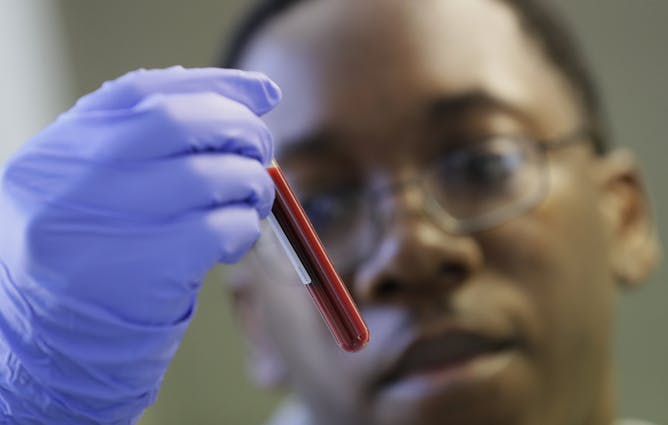
Research technician Leon McFarlane handles a blood sample from a volunteer in the laboratory at Imperial College in London, where a COVID-19 vaccine is under development, on July 30, 2020.
(AP Photo/Kirsty Wigglesworth)
Ronald Labonte, L’Université d’Ottawa/University of Ottawa; Katrina Plamondon, University of British Columbia; Mira Johri, Université de Montréal; Srinivas Murthy, University of British Columbia
With $1 billion in advance purchase agreements for COVID-19 vaccines, Canada has joined the vaccine nationalists: rich countries buying up more than half the global short-term supply of vaccine.
|

Just because there are no physical injuries, assault victims can suffer profound emotional trauma.
(Anthony Tran/Unsplash)
David Walton, Western University
Police news releases and media reporting of assault incidents sometimes mention victims suffered no physical injuries. Here's why that's so dismissive and harmful.
|
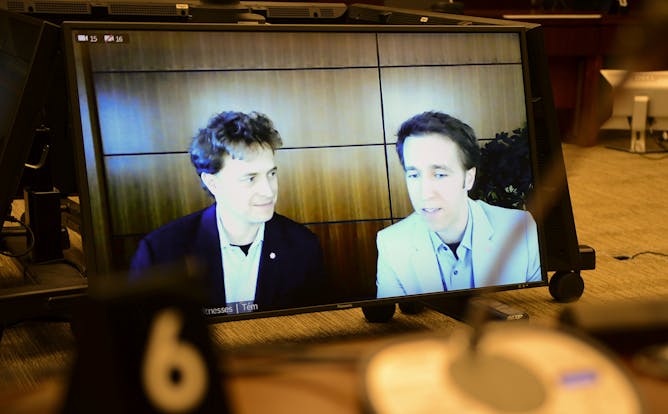
WE Charity’s Marc Kielburger, left, and Craig Kielburger, right, appear as witnesses via videoconference at a House of Commons finance committee hearing in Ottawa in July 2020.
THE CANADIAN PRESS/Sean Kilpatrick
Nelson Duenas, Concordia University
On paper, WE Charity could have been the best partner to implement the federal government's student grant program. But the failure to be transparent eroded the public's trust and led to its demise.
|
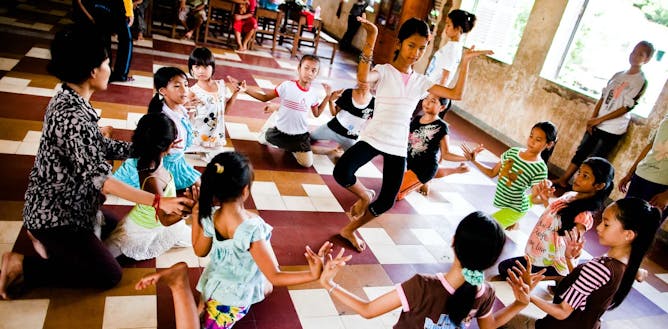
At a dance class supported by Cambodian Living Arts, students from the Bassac community.
learn classical Khmer dance at Sothearos School in Phnom Penh in 2012.
(Daniel Rothenberg)
Alexandre P. Bédard, Université du Québec à Montréal (UQAM); Caroline Coulombe, Université du Québec à Montréal (UQAM); François Audet, Université du Québec à Montréal (UQAM)
Cambodia found the strength to rebuild itself
through art after the 1979 genocide. While the context is different, this example suggests the importance of art in navigating COVID-19.
|
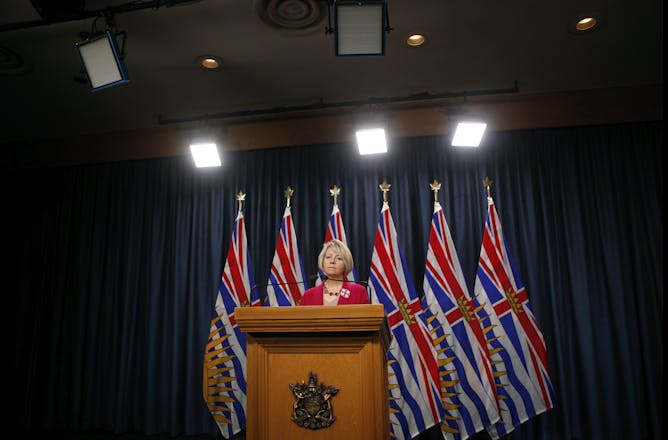
British Columbia’s Chief Health Officer Dr. Bonnie Henry provides an update on the coronavirus pandemic on Sept. 20.
THE CANADIAN PRESS/Chad Hipolito
Barbara Sherwood Lollar, University of Toronto; Bryan Gaensler, University of Toronto; Dominique Weis, University of British Columbia; Gretchen Harris, University of Waterloo; Jeremy McNeil, Western University; Lesley A. Warren, University of Toronto; Molly Shoichet, University of Toronto; Peter G Martin, University of Toronto; Sheldon Levy, Ryerson University; William Harris, McMaster University
Women in visible leadership positions are subject to personal attacks as less competent and reliable than their male colleagues. Acknowledging this double standard is the first step in addressing it.
|
La Conversation Canada
|
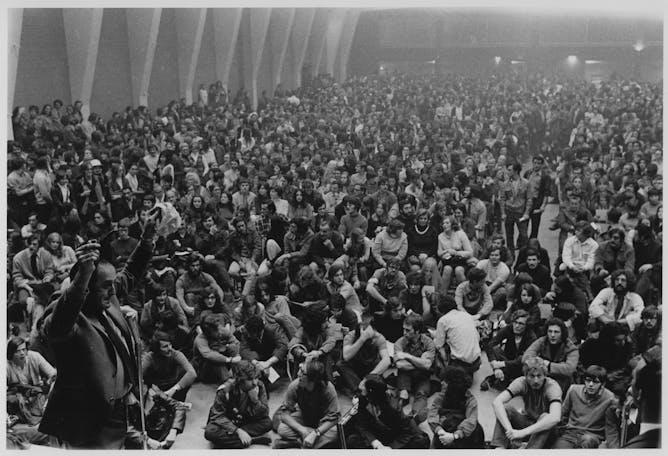
Au centre Paul-Sauvé de Montréal, le soir du 15 octobre 1970, près de 3 000 Québécois gonflés à bloc croient le « grand soir » venu. Quelques heures plus tard, plusieurs vont être arrêtés ou seront l’objet d’une perquisition par les forces de l’ordre qui appliqueront la Loi sur les mesures de guerre.
Éditions du Septentrion
Éric Bédard, Université TÉLUQ
La loi sur les mesures de guerre est une réponse à la frayeur qu’inspirent les jeunes, que les autorités voient comme une menace incontrôlable.
|
Politics
|
-
Prudence Flowers, Flinders University
A more conservative court could choose cases that incrementally erode abortion rights, or they could push for reconsideration of the constitutional issues at the very heart of Roe v. Wade.
|
|
Health
|
-
Lesley Palmer, University of Stirling
Architects need to learn to see dementia not as a disease but as a disability, and shift the design focus to spaces that can help maintain the everyday functions of people with the condition.
|
|
Culture + Society
|
-
Mathew Schmalz, College of the Holy Cross
The Catholic charismatic movement in the United States began during the 1960s. The practices of Catholic charismatics encompass various forms of Pentacostalism.
|
|
| |
| |
| |
| |
| |
| |
|
|
|
|
|
|
|